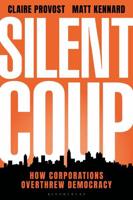Publisher's Synopsis
Race, Power, and Political Emergence in Memphis examines black political behavior and empowerment strategies in the city of Memphis. Each chapter of the text focuses on three themes-mobilization, emergence, and incorporation. By analyzing the effects of race on black political development in Memphis, scholars will be able to examine broader questions about its effects in other cities. How do political machines use substantial black electorates to their advantage? What forms of protest do black communities conduct to rebel against machine rule? What primary mobilization tactics have black citizens used during the different periods of their political development? Why do blacks mobilize more quickly in some cities? In cities with large and predominantly black populations, what elements prevent black candidates from winning citywide races? What constraints do newly elected black mayors face? What benefits do black citizens gain from their representation? After a predominantly black governing coalition is elected, what obstacles remain? Can black citizens translate proportional representation into strong political incorporation? How much power can African Americans realistic expect to gain in cities? This book is the most comprehensive case study of the city's political scene written to date. The text primarily shows that white racism is not the only obstacle to black political development. Black citizens can have population majorities, but lose elections for other reasons. Their ability to win elections and gain full incorporation depends heavily on whether they minimize internal conflict and establish coalitions with middle-class citizens and the business establishment.











